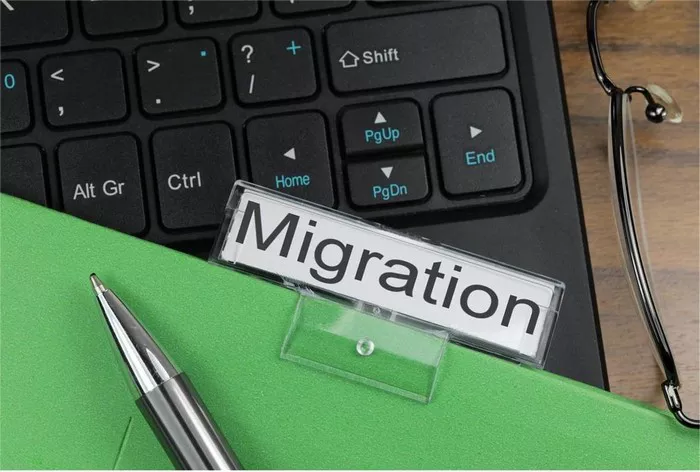In an era marked by globalization, immigration has become a significant phenomenon reshaping societies worldwide. People migrate for various reasons, driven by factors ranging from economic opportunities and political instability to personal aspirations and family reunification. Understanding the complexities behind immigration is crucial for policymakers, scholars, and the public alike. This article delves into the multifaceted reasons why individuals and families choose to migrate.
Economic Opportunities
Economic reasons are often cited as one of the primary drivers of immigration. Individuals may seek better job prospects, higher wages, or entrepreneurial opportunities in destination countries. Economic disparities between countries, whether due to differences in wealth, employment opportunities, or living standards, prompt many to leave their home countries in search of a better life.
For instance, individuals from developing nations may migrate to industrialized countries where there are more job opportunities and higher wages. This trend is particularly evident in regions like Latin America, where many migrate to the United States in pursuit of economic prosperity.
Moreover, global economic trends, such as recessions or job market fluctuations, can influence migration patterns. During economic downturns in their home countries, individuals may seek employment abroad as a means of supporting themselves and their families.
Education and Research Opportunities
Another significant reason for immigration is access to education and research opportunities. Many individuals migrate to pursue higher education degrees, specialized training, or research opportunities not available in their home countries. Countries renowned for their educational institutions, such as the United States, the United Kingdom, and Australia, attract a large number of international students and researchers each year.
Furthermore, educational migration often serves as a pathway to career advancement and professional development. Upon completing their studies, some immigrants choose to remain in the host country to gain work experience or contribute to its economy through their expertise.
Political Instability and Conflict
Political instability, conflict, and persecution in one’s home country are compelling reasons for many to seek refuge elsewhere. Individuals facing persecution based on their political beliefs, ethnicity, religion, or sexual orientation often have no choice but to flee their homeland in search of safety and protection.
The rise of authoritarian regimes, civil wars, and human rights violations in various parts of the world has led to a significant increase in forced migration. The Syrian refugee crisis, for example, resulted in millions of Syrians seeking asylum in neighboring countries and beyond, fleeing the violence and devastation caused by the ongoing conflict.
Similarly, political unrest in countries like Venezuela, Myanmar, and Afghanistan has forced many to leave their homes in search of safety and stability. Humanitarian organizations and host countries play a crucial role in providing assistance and protection to refugees fleeing persecution and conflict.
Family Reunification
Family reunification is a fundamental principle of immigration policy in many countries. Individuals often migrate to join family members who have previously settled in a different country. This form of immigration is facilitated through family-based visa programs and sponsorship schemes, allowing families to reunite and live together in a new environment.
The desire to be with loved ones and provide a better future for one’s family motivates many to undertake the arduous journey of immigration. Separation from family members due to migration can cause emotional distress and hardship, prompting individuals to seek reunification at all costs.
Family reunification also plays a significant role in immigrant integration and community cohesion. By reuniting families, host countries foster social ties and support networks that contribute to the well-being of immigrant communities.
Environmental Factors and Climate Change
Environmental degradation, natural disasters, and climate change are increasingly recognized as drivers of migration. Rising sea levels, extreme weather events, droughts, and desertification threaten the livelihoods and safety of millions of people worldwide, forcing them to leave their homes in search of alternative living conditions.
In some cases, environmental factors exacerbate existing social, political, and economic challenges, leading to internal displacement and cross-border migration. Small island nations, coastal communities, and regions prone to natural disasters are particularly vulnerable to the adverse effects of climate change.
As the impacts of climate change intensify, experts predict that environmental migration will become more prevalent, necessitating proactive measures to address the needs of affected populations and mitigate future risks.
Conclusion
Immigration is a complex and multifaceted phenomenon shaped by a myriad of factors, including economic opportunities, political instability, family ties, educational pursuits, and environmental considerations. Understanding the diverse reasons behind immigration is essential for developing effective immigration policies, promoting social integration, and fostering inclusive societies.
While immigration presents opportunities for individuals and communities to thrive, it also poses challenges related to social cohesion, cultural diversity, and resource allocation. By addressing the root causes of migration, investing in migrant integration programs, and upholding human rights and dignity, societies can harness the benefits of immigration while mitigating its potential downsides.
In an interconnected world where people, goods, and ideas move freely across borders, immigration will continue to shape the demographic landscape and contribute to the richness and diversity of human experience. Embracing this reality with empathy, compassion, and solidarity is key to building a more inclusive and equitable future for all.


